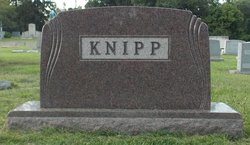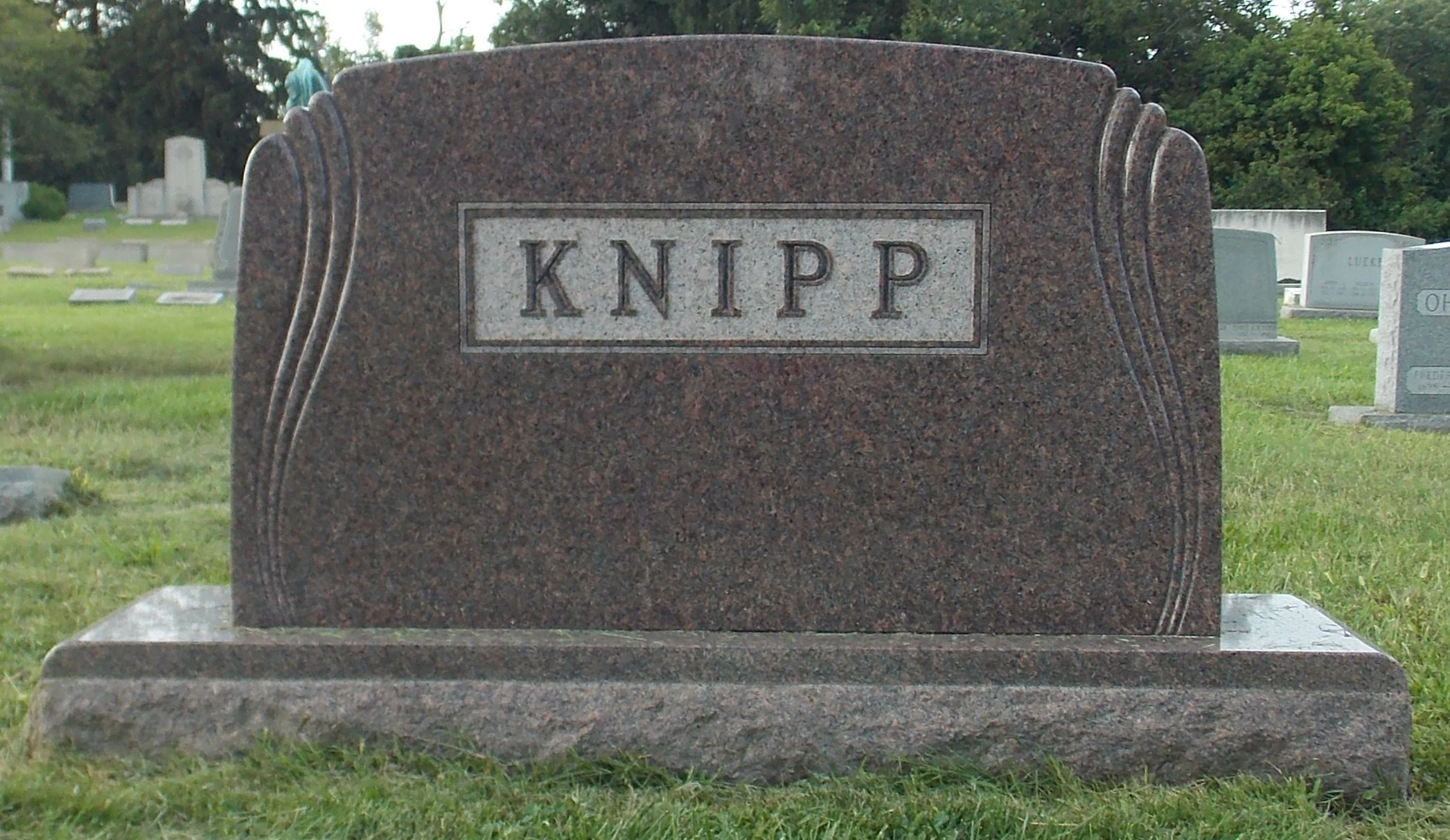Dr. Knipp was born at his grandfather's house, at Fremont Avenue and Lanvale Street, where his father, George A. Knipp, and grandfather Harry E. Knipp practiced medicine together. The Knipps have been practicing medicine — 11 family members have been physicians —since pre-Revolutionary War days.
Dr. Harry L. Knipp later moved with his father to the 4100 block of Edmondson Ave. in Edmondson Village, where he grew up. After graduating from City College in 1942, he began his college studies at the Johns Hopkins University.
He left Hopkins not long afterward and entered the Army Air Forces, where he was a radar bombardier and radar navigator. He later became an instructor in radar bombing at MacDill Field in Tampa, Fla., where he attained the rank of lieutenant.
Dr. Knipp was a 1947 graduate of what is now Loyola University of Maryland and earned his medical degree in 1951 from the University of Maryland School of Medicine.
After completing an internship and residency in internal medicine at St. Agnes Hospital, Dr. Knipp joined his father in practice at Augusta and Edmondson avenues.
"It actually was in the house where he had grown up," said a son, Dr. Harry Clarke Knipp, a Westminster radiologist.
When the senior Dr. Knipp retired in 1964, Dr. Knipp remained there until 1977, when he moved the practice to the Frederick Villa Medical Center.
"He was an old-school physician and never had appointments. People came, sat in the office, and waited their turn. If someone was sicker, they went ahead of the others," his son said. "He had evening hours five nights a week and was off Wednesdays. I loved Wednesdays, because that was the day I could play with my dad."
Dr. Knipp's routine never varied, his son said. He'd make hospital rounds in the morning and then go to his office. He'd see patients until 4 p.m., when he went home for a brief nap and dinner, which was always on the table at 5 p.m.
At the conclusion of the evening meal, he'd return to the office and stay there as late as 9 p.m. or 11 p.m., until there were no longer any patients to see.
"He always wore a short white coat and white shirt and tie whenever going on rounds, seeing patients or making house calls," his son said.
"If a family of five kids came in, he'd charge for two. Sometimes he'd be paid with cold cuts or boxes of soda. At Christmastime, patients would give him boxes of cookies, wine, booze, craft items they had made and food," Dr. Knipp said.
Long after it was fashionable or economically viable to make house calls, Dr. Knipp, who was known as "Dr. Harry," continued the practice until retiring in 1993.
"I think he charged $6 for a house call," his son said. "It wasn't uncommon for him to help his older patients with such non-medical tasks as rewiring a frayed lamp cord or other household repairs."
"The Knipps were a medical dynasty in West Baltimore. He was extremely well respected and his patients revered him," said the Rev. Michael J. Roach, pastor of St. Bartholomew Roman Catholic Church in Manchester, whose father was a Ten Hills physician and neighbor. "He was so highly respected by his peers that they sent their families to Dr. Knipp."
Bill Mitchell, a boyhood friend and lifelong patient, said that one of Dr. Knipp's great strengths was "making patients feel comfortable."
"He was easygoing and trustworthy. He had a great bedside manner and could put patients to ease. He loved joking around. He really was a very good doctor," said Mr. Mitchell.
"He was more than a doctor, he was a friend. He was absolutely wonderful," said Ruth Bartgis, who was Dr. Knipp's secretary and assistant for 25 years until he retired. "He was loved by his patients and his employees. He had patients who had moved away who continued to come back for check-ups."
At the time of his retirement, Dr. Knipp told The Baltimore Sun in an interview that advancing arthritis in his hands and knees made working difficult.
"It's not so much fun any more. There is so much paperwork and you're always fighting the government about something," he said.
Reflecting on his career, he said, "It's the continuity of care, treating people from the time they're born and then treating their children. I used to ride with my father and then I worked with him. Some people have never been treated by anyone else. That's real medicine. We need more continuity like that."
His numerous medical society memberships included fellowships in the American Academy of Family Physicians and the Maryland Academy of Family Physicians.
Since 2003, Dr. Knipp had lived at his vacation home at Woods Resort in Hedgesville. He enjoyed playing the piano, organ and accordion. He liked fishing, golf and billiards.
He also liked making bolo ties, which he wore casually, for family and friends.
Services are private.
In addition to his son, Dr. Knipp is survived by his childhood sweetheart and wife of 65 years, the former Barbara Clarke; two other sons, George H. Knipp and John W. Knipp, both of Catonsville; nine grandchildren; and two great-grandchildren.
Dr. Knipp was born at his grandfather's house, at Fremont Avenue and Lanvale Street, where his father, George A. Knipp, and grandfather Harry E. Knipp practiced medicine together. The Knipps have been practicing medicine — 11 family members have been physicians —since pre-Revolutionary War days.
Dr. Harry L. Knipp later moved with his father to the 4100 block of Edmondson Ave. in Edmondson Village, where he grew up. After graduating from City College in 1942, he began his college studies at the Johns Hopkins University.
He left Hopkins not long afterward and entered the Army Air Forces, where he was a radar bombardier and radar navigator. He later became an instructor in radar bombing at MacDill Field in Tampa, Fla., where he attained the rank of lieutenant.
Dr. Knipp was a 1947 graduate of what is now Loyola University of Maryland and earned his medical degree in 1951 from the University of Maryland School of Medicine.
After completing an internship and residency in internal medicine at St. Agnes Hospital, Dr. Knipp joined his father in practice at Augusta and Edmondson avenues.
"It actually was in the house where he had grown up," said a son, Dr. Harry Clarke Knipp, a Westminster radiologist.
When the senior Dr. Knipp retired in 1964, Dr. Knipp remained there until 1977, when he moved the practice to the Frederick Villa Medical Center.
"He was an old-school physician and never had appointments. People came, sat in the office, and waited their turn. If someone was sicker, they went ahead of the others," his son said. "He had evening hours five nights a week and was off Wednesdays. I loved Wednesdays, because that was the day I could play with my dad."
Dr. Knipp's routine never varied, his son said. He'd make hospital rounds in the morning and then go to his office. He'd see patients until 4 p.m., when he went home for a brief nap and dinner, which was always on the table at 5 p.m.
At the conclusion of the evening meal, he'd return to the office and stay there as late as 9 p.m. or 11 p.m., until there were no longer any patients to see.
"He always wore a short white coat and white shirt and tie whenever going on rounds, seeing patients or making house calls," his son said.
"If a family of five kids came in, he'd charge for two. Sometimes he'd be paid with cold cuts or boxes of soda. At Christmastime, patients would give him boxes of cookies, wine, booze, craft items they had made and food," Dr. Knipp said.
Long after it was fashionable or economically viable to make house calls, Dr. Knipp, who was known as "Dr. Harry," continued the practice until retiring in 1993.
"I think he charged $6 for a house call," his son said. "It wasn't uncommon for him to help his older patients with such non-medical tasks as rewiring a frayed lamp cord or other household repairs."
"The Knipps were a medical dynasty in West Baltimore. He was extremely well respected and his patients revered him," said the Rev. Michael J. Roach, pastor of St. Bartholomew Roman Catholic Church in Manchester, whose father was a Ten Hills physician and neighbor. "He was so highly respected by his peers that they sent their families to Dr. Knipp."
Bill Mitchell, a boyhood friend and lifelong patient, said that one of Dr. Knipp's great strengths was "making patients feel comfortable."
"He was easygoing and trustworthy. He had a great bedside manner and could put patients to ease. He loved joking around. He really was a very good doctor," said Mr. Mitchell.
"He was more than a doctor, he was a friend. He was absolutely wonderful," said Ruth Bartgis, who was Dr. Knipp's secretary and assistant for 25 years until he retired. "He was loved by his patients and his employees. He had patients who had moved away who continued to come back for check-ups."
At the time of his retirement, Dr. Knipp told The Baltimore Sun in an interview that advancing arthritis in his hands and knees made working difficult.
"It's not so much fun any more. There is so much paperwork and you're always fighting the government about something," he said.
Reflecting on his career, he said, "It's the continuity of care, treating people from the time they're born and then treating their children. I used to ride with my father and then I worked with him. Some people have never been treated by anyone else. That's real medicine. We need more continuity like that."
His numerous medical society memberships included fellowships in the American Academy of Family Physicians and the Maryland Academy of Family Physicians.
Since 2003, Dr. Knipp had lived at his vacation home at Woods Resort in Hedgesville. He enjoyed playing the piano, organ and accordion. He liked fishing, golf and billiards.
He also liked making bolo ties, which he wore casually, for family and friends.
Services are private.
In addition to his son, Dr. Knipp is survived by his childhood sweetheart and wife of 65 years, the former Barbara Clarke; two other sons, George H. Knipp and John W. Knipp, both of Catonsville; nine grandchildren; and two great-grandchildren.
Family Members
Sponsored by Ancestry
Advertisement
Explore more
Sponsored by Ancestry
Advertisement





